When Is It Too Late To Neuter A Cat? Read On To Find Out!
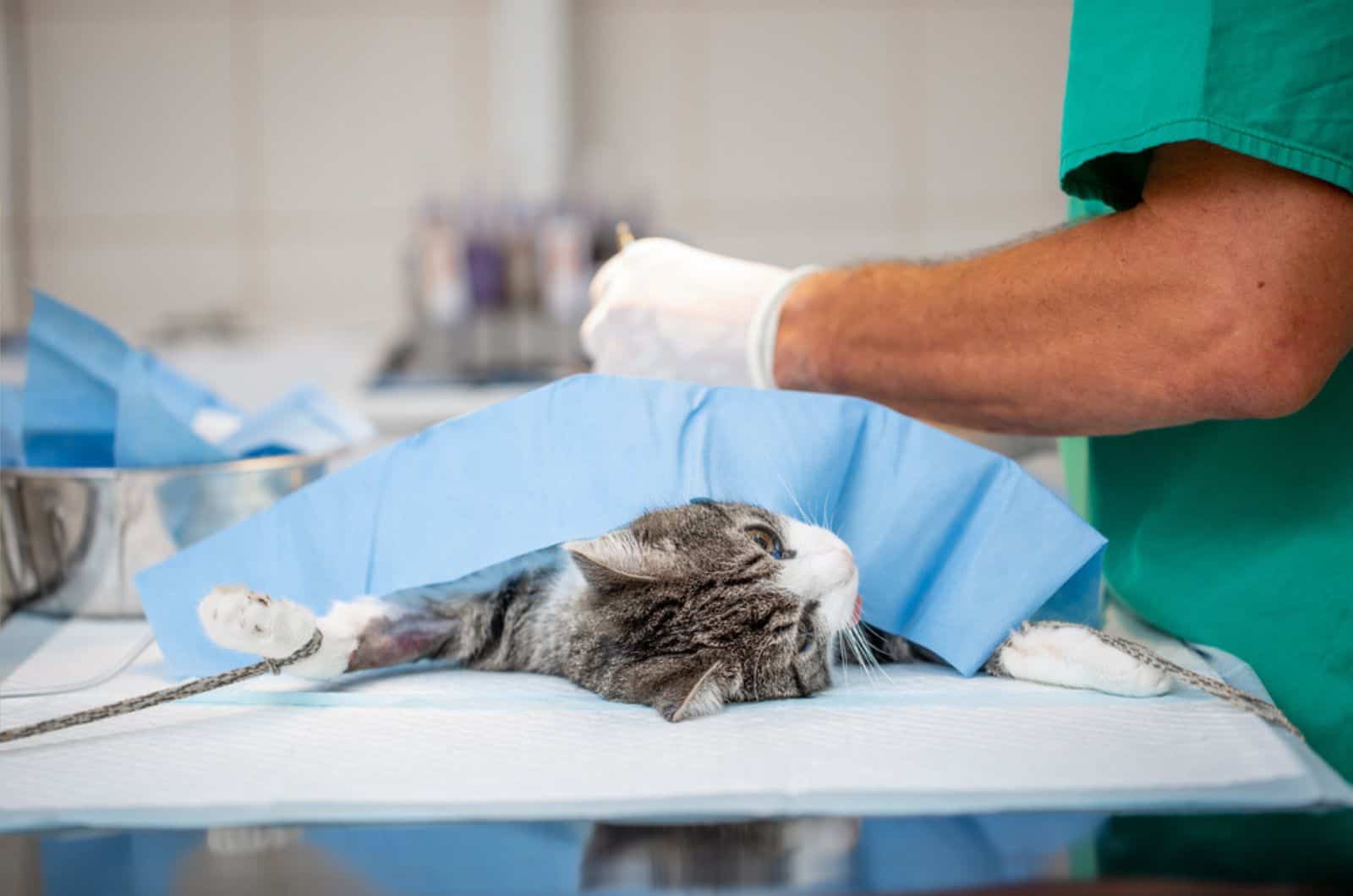
Every responsible cat owner wants their kitties to be happy and healthy. These little furry creatures really know how to get under our skin, and they usually become true family members. We become so invested, as cat owners, in our cats’ wellbeing.
There are many different ways you can help care for your cat’s health, and spaying or neutering is one of them.
Most cat parents and breeders choose to spay/neuter their kittens or cats for many reasons, such as certain health benefits, improve the cat’s behavior, avoid unwanted pregnancies in cats, and so on.
It’s very important to know it’s the right time to neuter your cat, and when, if ever, it is too late to neuter your cat. If you want to know more, then read on and find out!
When Is It Too Late To Neuter A Cat?
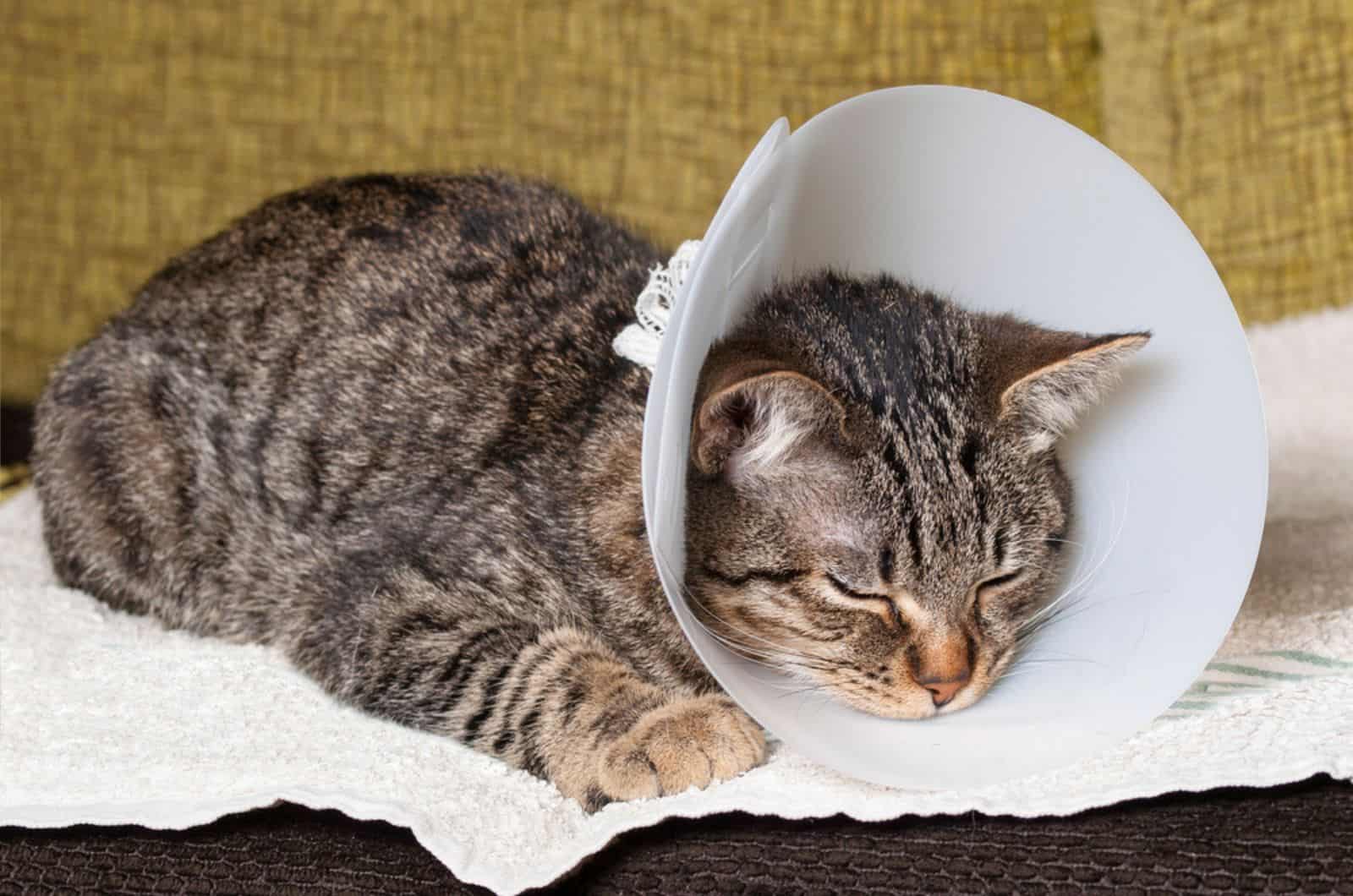
This is important for every cat owner who wants to know more about how to protect their cat’s health. When a cat is spayed or neutered, it means that it can no longer reproduce.
If that seems sad to you, worry not, because there are a lot more advantages for the cat than disadvantages.
Let’s explore the benefits of spaying or neutering a cat. Understanding castration and knowing when a cat should be spayed or neutered or when is it too late to neuter a cat is essential for new pet parents. Spoiler alert – it’s never too late, but earlier is better.
READ ALSO: Why Do Cats Carry Toys And Meow? All You Need To Know!
All There Is To Know About Castration
Let’s start with these two terms: spaying and neutering. These two terms are very similar and they both refer to sterilization.
The difference between the terms ‘spay’ and ‘neuter’ is that spaying refers to the removal of uterus or ovaries of female cats while neutering refers to the removal of the testicles in male cats, also called castration.
This may sound cruel, however, there are a lot of health and wellbeing benefits from the surgical procedure. Some of the benefits include reduced risk of several serious health issues, no unwanted pregnancies, and a reduction in various unwanted behaviors.
The procedure isn’t difficult and it is very important for your feline friend. It is usually done when cats reach their sexual maturity, or after the first heat cycle.
The spaying/neutering procedure involves a veterinarian removing the cat’s reproductive organs through a small incision.
If you worry about how your kitty will feel after the procedure, don’t worry because you’ll get all the after-care advice you need from your vet.
After the operation, cats may be confused a bit, or they may be extremely affectionate. Some behaviors won’t change right away – for example, neutered males may still want to mate. However, these behaviors usually disappear during the recovery process.
What Does The Spaying Or Neutering Procedure Look Like?
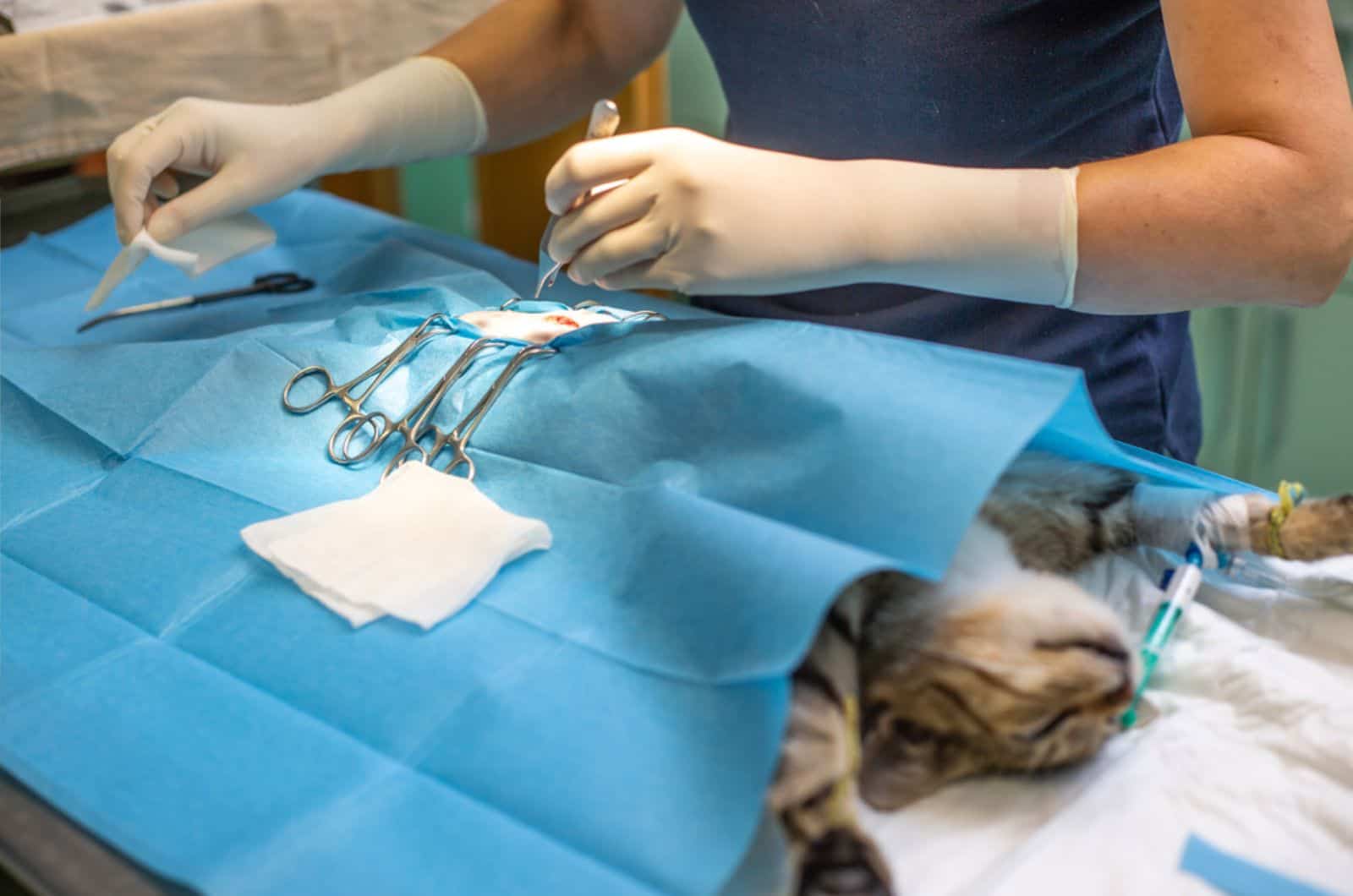
To understand it better, let’s see what spaying and neutering procedures entail. Even though these two procedures are different, both of them are performed under general anesthesia.
Of course, your cat won’t feel anything because it will be completely asleep. If it’s a spaying procedure, the cat is intubated. If It’s a neutering procedure, the cat has a face mask instead.
Either way, during both of these procedures your feline friend will be completely safe and won’t experience any kind of pain during the procedure.
Moreover, both male and female cats receive pain relief and other medications that help them fall asleep, and be calm and pain-free. When cats are spayed, they are covered with a heating blanket, however, that’s not the case with male cats.
The reason for this is that neuter surgery is very fast, therefore, the doctor focuses on the job while the tomcat is asleep, and then immediately after the surgery the male cat also gets covered with a heating blanket.
When spaying female cats, the reproductive organs (uterus and ovaries) are removed through a small incision made in the abdomen. After the removal of the reproductive organs, the incision is closed with two layers of stitches, and the skin is closed with stitches, skin glue, and staples.
For male cats, the neutering procedure involves the removal of the testicals. They’re removed by the vet making an incision at the base of the cat’s penis, nearest to the skin that holds the testicles, called the scrotum.
The incision, just like in the spaying procedure, is closed with stitches that will be absorbed by the body over time, and the skin is closed with skin glue, sutures, stitches, or staples.
How Long Can These Procedures Last?
Usually these surgical procedures are a matter of routine, and they can be carried out very quickly. However, it does depend on a few factors such as the vet’s experience, the cat’s overall health, cat’s size, and whether a female cat is in heat or not.
If you are wondering can you spay a cat in heat, the answer is yes, but surgery may take a bit longer as it is more complicated due to her reproductive organs being very sensitive and containing more blood when they’re in heat.
However, when a cat isn’t in heat, the spay procedure may last from 15 to 20 minutes, while the neuter procedure for a male cat may take as little as 2 minutes, but usually it takes 5 to 20 minutes to get it done.
Why Should You Spay/Neuter Your Feline?
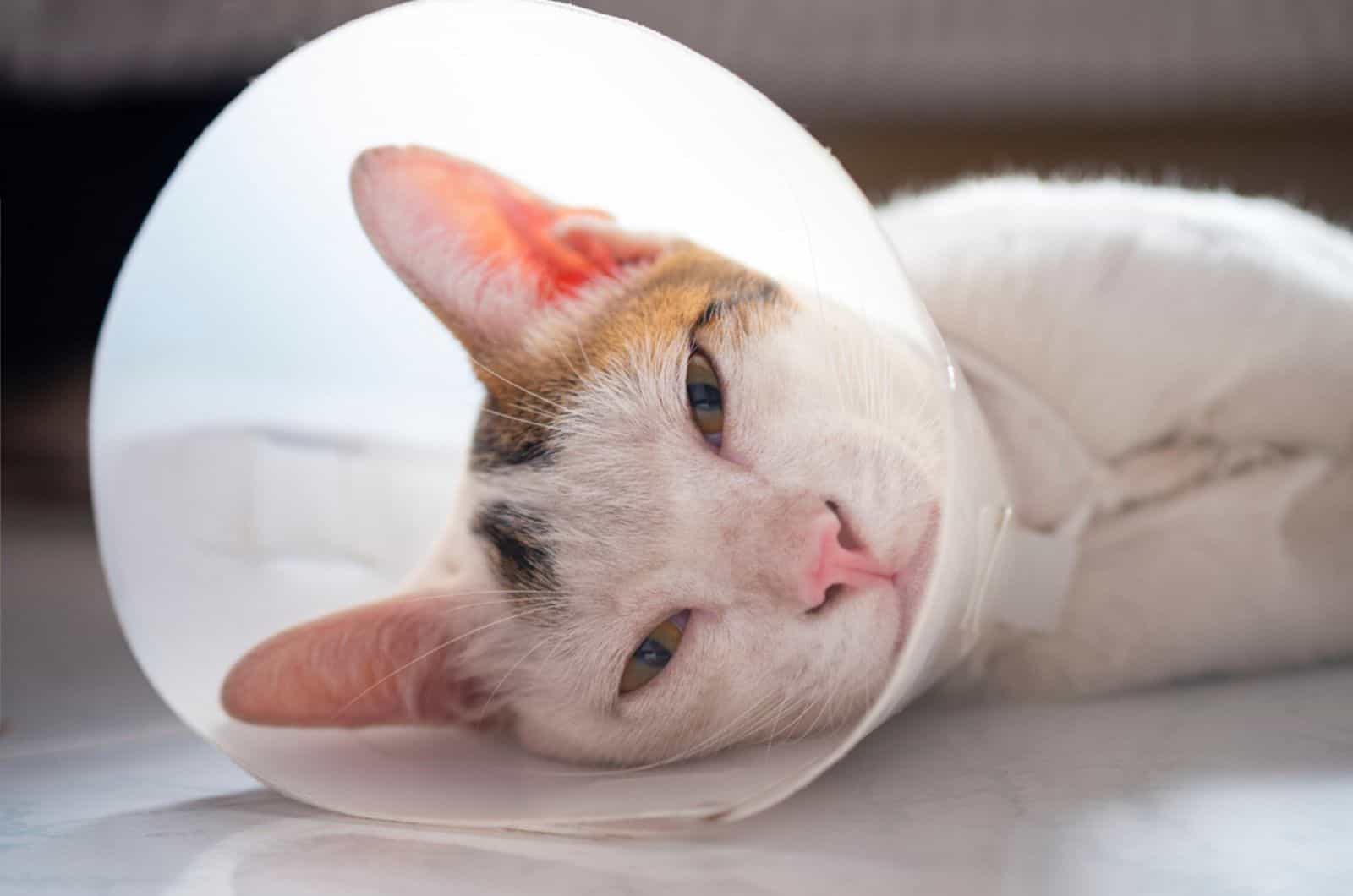
Now that you’re completely familiar with the terms spaying and neutering, the final question is will you spay or neuter your cat?
The final decision depends on you, and I know that it may sound scary and that the cat will need more of your attention during the recovery process, but there are a lot of advantages!
I’m telling you this from my own experience because I have neutered male cats and the change was extremely visible. The cats were extremely affectionate and they calmed down, and some unwanted behavior they had been displaying was happily eliminated.
The best thing was that the cats were extremely healthy and lived longer than unneutered males.
Before your final decision, you should consult with your vet, and have them check your cat’s health because it’s extremely important that the cat is healthy before doing this procedure.
Before the spaying procedure, you need to be sure that your female cat isn’t pregnant, therefore check for pre-labor signs or take her to the vet to find out for sure
Keep reading to find out more about this procedure because it’s crucial to know when is the right time or when is it too late to neuter a cat.
READ ALSO: How Many Nipples Do Cats Have? This Is What You Need To Know
When Should You Neuter Or Spay Your Cat?
For a long time, it was advised that the best time to neuter or spay your cat was when the kitten reaches five or six months of age.
Nowadays, the advice is different. Most experts recommend to spay/ neuter your feline before they reach five or six months, mainly because cats become sexually mature around four months of age.
Therefore if you have a young kitten, you can neuter him even before the recommended kitten age. If your kitten has received all the recommended vaccinations, and has been checked regularly by the vet, you can have him neutered.
You may have to give the cat extra care and attention after the surgery, but there’s no doubt that your feline friend will later be both happier and healthier. Let’s check out the benefits of the neutering procedure.
Benefits Of Neutering Cats At A Young Age

It is recommended to neuter cats at a young age because of the many health benefits it can offer to young felines as well as improving the quality of their lives.
Here are some of the benefits:
• Neutering at a young age decreases pet overpopulation and stray cats, which is a huge problem nowadays.
• Most cats calm down after being spayed/neutered and usually stop showing unwanted bad behavior.
• The recovery period is faster and easier in younger cats, and they experience less pain.
• Most cats stop showing unwanted behavior especially the loud meowing of the female cat when in heat.
• It’s cheaper than taking care of a litter of kittens.
• Your feline friend will be less stressed.
• Early neutering prevents male cats wanting to spray around their environment, that is when they reach their sxual maturity, which is why it’s called sexual-related urine marking.
• Neutered male cats should stop fighting with other males especially during mating season, therefore they’re less likely to get injured.
• Early neutering improves the cat’s health condition because it reduces the risk of tumors.
• Reduced risk of suffering from infectious diseases as a result of fighting or mating with other cats.
So, early spaying/neutering brings only positive things because it can only improve your cat’s quality of life, behavior, and most importantly, its health.
There is no evidence so far that early neutering in cats has any disadvantages. Although there’s no age limit for a cat to be spayed or neutered, younger cats recover easier and faster, just like after any other injury or surgery.
When Is It Too Late To Neuter A Cat?

As previously mentioned, there is no exact age limit for being neutered. Even though it’s recommended that owners neuter cats around five or six months of age, cats can actually be neutered at any age, under certain conditions.
Early neutering comes with many benefits, but late neutering has both advantages and disadvantages. As we explore these, you will see that early neutering is a better, less stressful option.
Of course, it’s not always up to you to choose between early or late neutering. If you have just adopted a new adult cat that isn’t spayed or neutered, you will have to consider the pros and cons of late neutering and decide for yourself.
Pros Of Neutering An Adult Cat
Health Improvement
Adult cats can still benefit from being neutered. As previously mentioned the only condition for the procedure to go ahead is that the cat is healthy at the time.
The procedure will have a positive impact on the cat’s life and will improve its overall health. When spayed or neutered, cats typically have a longer lifespan and a decreased risk of health issues including:
• Mammary gland tumors
• Ovarian cancer
• Testicular cancer
• Womb or uterine infection (pyometra)
• Feline immunodeficiency virus (FIV)
• Feline Leukemia Virus (FeLV)
• Breast cancer
Behavior Improvement
Behavior improvement is another benefit from a cat being neutered. Intact male cats are very territorial and tend to mark their territory frequently.
If your tomcat is an indoor cat, behavior problems may be present, so he may urinate and spray around the house and similar.
He may also show signs of aggression because male cats usually fight with other males, especially during the mating season. Injuries may also occur if a female cat attacks a male after mating.
This behavior is driven by hormones, so if you neuter your cat, there’s a good chance that their behavior will change for the better.
Usually, spayed and neutered cats start showing a lot of affection, following you everywhere you go and wanting to cuddle. So, if you have wondered why your cat won’t leave you alone, this may be the answer.
This behavior change happens normally thanks to the reduction of the sex hormone testosterone. Your cat may take some time to get used to it, but eventually it will, and then you two can simply enjoy your time together.
Environmental Change
Besides improving the health, lifespan, and behavior, neutering a cat at any age can be good for your environment too.
So, almost every cat owner knows that male cats tend to fight, especially during mating season, and how they’re overprotective towards their territory.
They mark their territory all the time to keep other unwanted cats away from it. A loud encounter with another tomcat may be annoying for the whole neighborhood.
Unneutered cats are more aggressive due to high levels of sex hormones.
If you decide to neuter your furry friend, his behavior may completely change. You also reduce the risk of him getting injured as a result of various fights with other males. So, neuter your male cat and everyone will be happy!
Cons Of Neutering An Adult Cat

Even though cats can be neutered and spayed at any life stage, late neutering carries its own risks, which is why most experts recommend early neutering.
Neutering is a minor surgical procedure but it can still be risky for your feline friend. The older your cat is, the higher the risks.
• Risk of infection – older cats have weaker immune systems which may allow the incision to become infected more easily. Usually, these infections are a result of dirty litter boxes.
Therefore, you need to pay special care and attention to your feline friend after the neutering procedure; clean the litter box frequently, and use larger litter boxes so that your cat is comfortable. Female cats have a higher risk of infection after spaying, due to the area of the incision.
• Longer recovery – as with every other injury or surgery, older cats tend to recover more slowly, and there’s a higher risk of complications.
On the contrary, younger cats recover faster and experience less pain in comparison to older cats.
• Health condition – it’s not usually recommended to neuter a cat if it already suffers from certain health problems, as its condition may get worse.
• Surgery complications – older cats may experience anesthetic or other complications during the surgery.
Everything has its pros and cons, including neutering surgery. Neutering older cats is often done without any complications. If you are concerned about the higher risk, speak to a vet for tailored advice.
The best thing, if you’re able, is to neuter or spay your cat as soon as possible and then you never have to worry about when is it too late to neuter a cat!
Treatment And Recovery After Spaying/Neutering
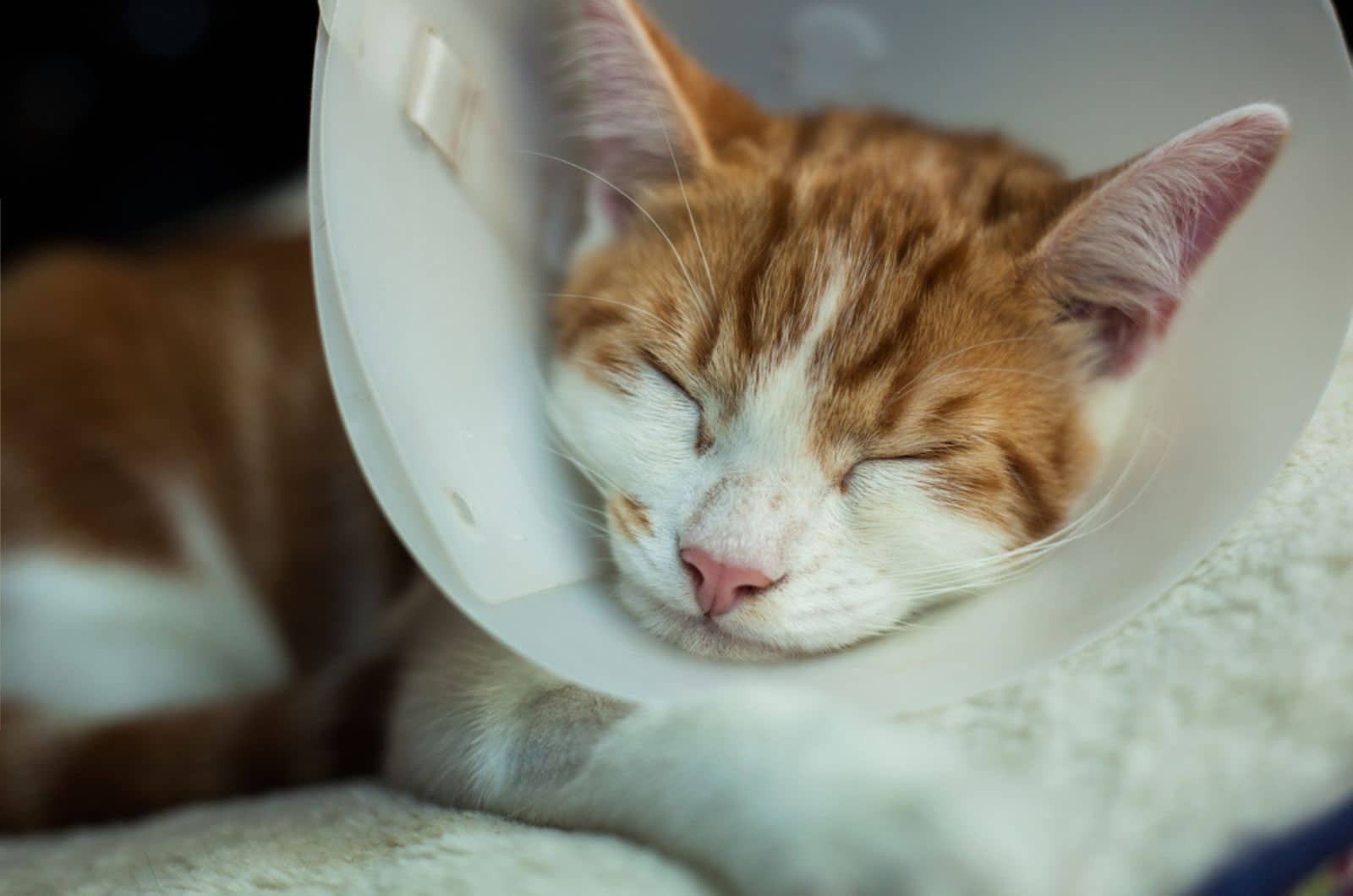
As with every other surgery and recovery, some cats will recover faster than others, and that depends on every cat individually. However, during the recovery period, your feline friend will need your full attention, because it will probably be weak or in pain.
I remember when I had my cat spayed. After the surgery she was so weak that she peed outside of the litter box for the first time in her life.
The poor thing just couldn’t make it to the litter box on time.
During that period of recovery you need to have a lot of understanding for your pet and try to help them as much as possible.
The most important thing about recovery is to know how long to keep a cat confined after spayed or neutered.
As previously mentioned, some cats recover faster than others, therefore the answer to this question depends on the individual cat.
Normally, cats should be confined for at least 10-14 days.
That resting period is important because it is when most of the healing process takes place. Resting will help the cat to recover properly.
It is also important to provide your cat with a safe, quiet room where it can rest without the risk of getting injured or being disturbed similar.
The room should be secure and preferably small so that your cat doesn’t start running or jumping around as it could damage the stitches or injure itself in another way, making the recovery take even longer.
FAQ
Is It Ok To Neuter A 2 Year Old Cat?
A cat can be neutered at any age but it is better to neuter early. It’s best to neuter male cats when they reach 5 or 6 months of age; that’s when they become sexually active.
If you choose early neutering for your tomcat, you will improve both his health and behavior. It’s also ok to neuter a 2-year-old cat, but the recovery period might be longer than it would be for a younger cat.
Is 7 Months Too Late To Neuter A Cat?
No, 7 months is not too late to neuter a cat. Most experts recommend to neuter your kitty when it reaches 5 or 6 months of age, when it becomes sexually mature. However, it’s completely okay to neuter your cat in the period between 6 and 12 months, or even later.
What Happens If You Don’t Neuter Your Male Cat?
If you don’t neuter your male cat, you may have some minor problems with behavior. For example, male cats are extremely territorial, therefore you may have problems with spraying or peeing on furniture and on other things in your home.
As well as marking territory, unneutered male cats are more likely to fight with other tomcats, and that has risks such as injuries or diseases.
Unneutered cats are more likely to develop various health problems, while neutered cats are believed to be much healthier and typically live much longer.
What If A Cat Is Too Old To Be Neutered?

According to experts, a cat cannot be too old to be neutered; cats can be neutered at any age. Even when cats are older, the neutering procedure still carries certain benefits for them. The only condition for the procedure is that the cat is healthy so that there won’t be any complications during surgery.
Final Thoughts
To conclude, both neutering and spaying procedures are minor procedures that can be done in 30 minutes max.
The main difference between these two procedures is that spaying refers to the removal of uterus and ovaries of female cats, while neutering refers to the removal of the testes of male cats.
Both neutering and spaying bring a lot of benefits for cats and their owners too. The stray cat population is reduced, it positively affects their physical health, improves their behavior, increases life expectancy, and even protects your home environment.
Most pet owners wonder when is it too late to neuter a cat, but the truth is that there’s no age limit for a cat to be neutered. However, it’s recommended that pet owners neuter cats at a young age because it has more benefits, while neutering at a late age can carry certain risks.
Either way, spaying and neutering is a good thing. Now you know the advantages and disadvantages of these procedures, so you can make the best decision for your furry friend!






